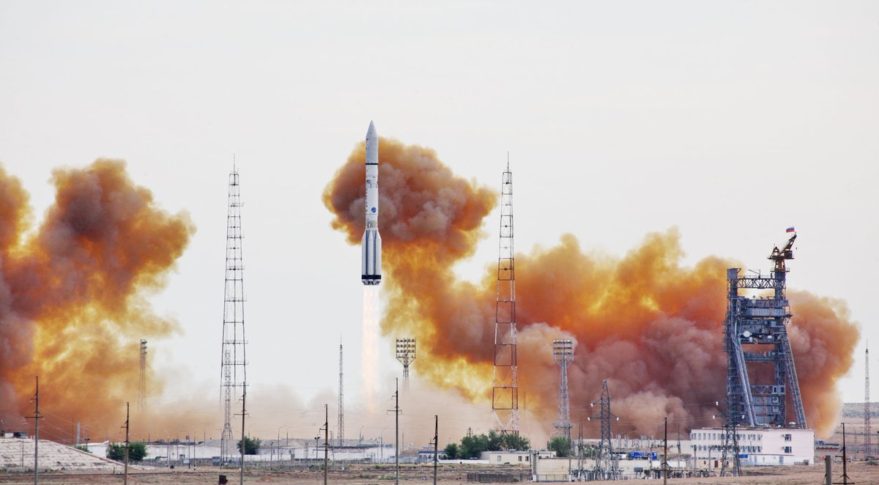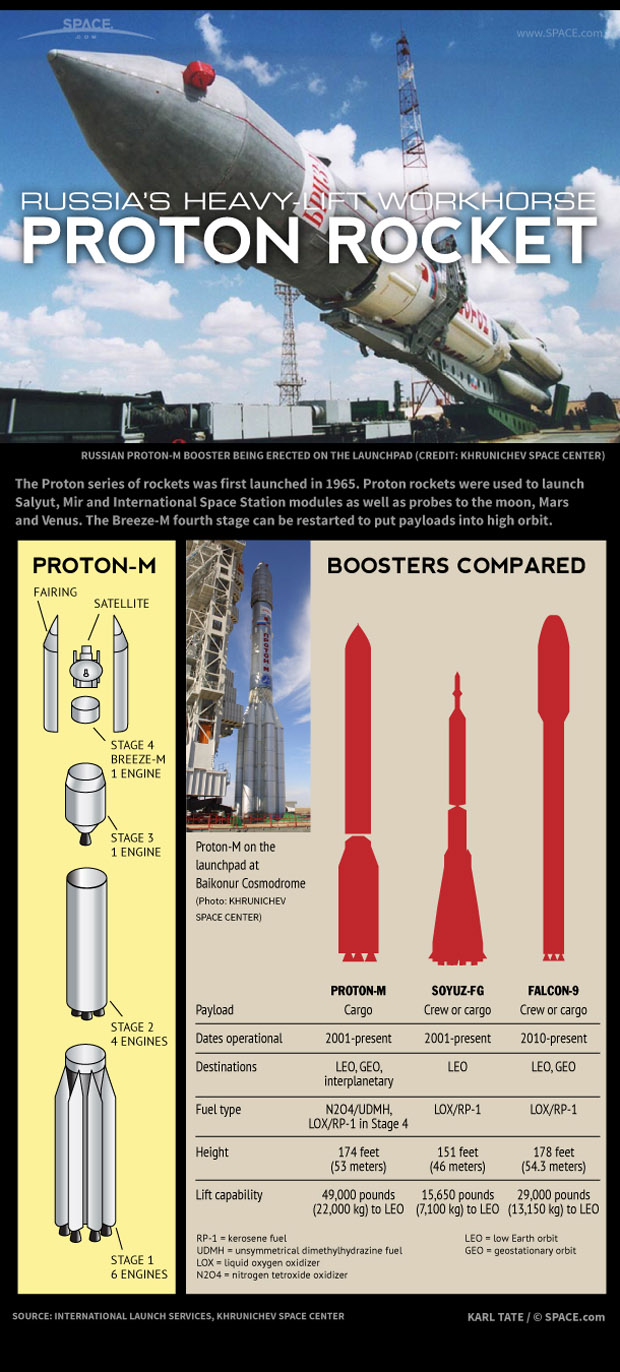Proton Returns After Year Hiatus with EchoStar-21 Launch
WASHINGTON — Russia's Proton rocket returned to service June 7, almost one year to the date from vehicle's last flight, delivering a U.S. telecommunications satellite into geostationary transfer orbit.
The commercial mission, organized by International Launch Services of Reston, Virginia, lifted off at 11:45 p.m. Eastern Time (9:45 a.m. local time) from the Baikonur Cosmodrome in Kazakhstan carrying the EchoStar-21 S-band satellite for Englewood, Colorado-based fleet operator EchoStar.
Roscosmos confirmed June 8 that EchoStar-21 separated from Proton's Breeze-M upper stage 9 hours and 13 minutes into the mission after five separate engine burns, as planned.
Proton last launched June 9, 2016 with Intelsat-31, delivering the satellite to its intended orbit despite the premature shutdown of one of the rocket's four second-stage engines. That anomaly resulted in a Russian investigation to determine the cause.
Following that discovery, Khrunichev Space Center, manufacturer of Proton and parent company of ILS, separately identified an incorrect solder had been used for multiple engines in the factory that machines Proton's second and third-stage engines. Russia's January 2017 decision to replace those engines, which past extended hot-fire tests despite having a higher melting-point solder, delayed Proton's return to flight to May. A Roscosmos spaceport inspection then pushed the mission out to June.
EchoStar is placing the EchoStar-21 satellite at 10.25 degrees east longitude, where its subsidiary EchoStar Mobile Limited intends to deliver mobile satellite services across the European Union with a portion of the spacecraft's capacity. Palo Alto, California-based Space Systems Loral built the satellite.
At 6,900-kilograms (15,100-lbs), EchoStar-21 is the heaviest payload launched to date on Proton.
Breaking space news, the latest updates on rocket launches, skywatching events and more!
ILS has two other launches planned this year — Hispasat's Amazonas 5 and AsiaSat's AsiaSat-9 — both also from manufacturer Space Systems Loral. The Russian news agency Tass said yesterday that the number of federal Proton missions, previously four, had been reduced to two for the year.
This story was provided by SpaceNews, dedicated to covering all aspects of the space industry.
Caleb Henry is a senior analyst for Quilty Analytics and a former staff writer for the space industry publication SpaceNews. From 2016 to 2020, Caleb covered the global satellite industry for SpaceNews, chronicling everything from launches, spacecraft manufacturing and ground infrastructure. Caleb's work has also appeared in NewSpace Global and Access Intelligence. He earned a bachelor's degree in political science with a minor in astronomy from Grove City College.



